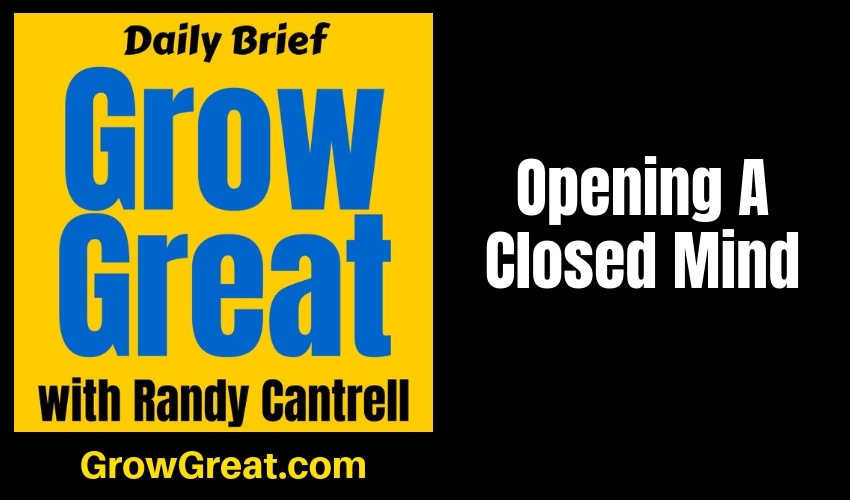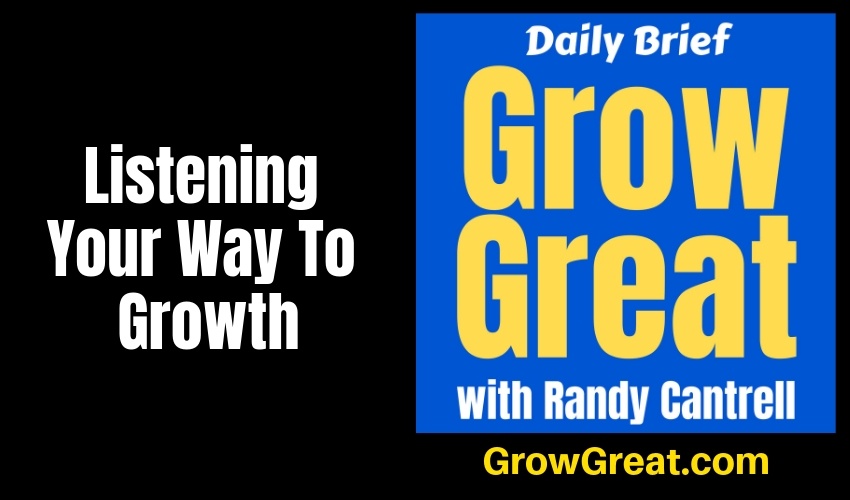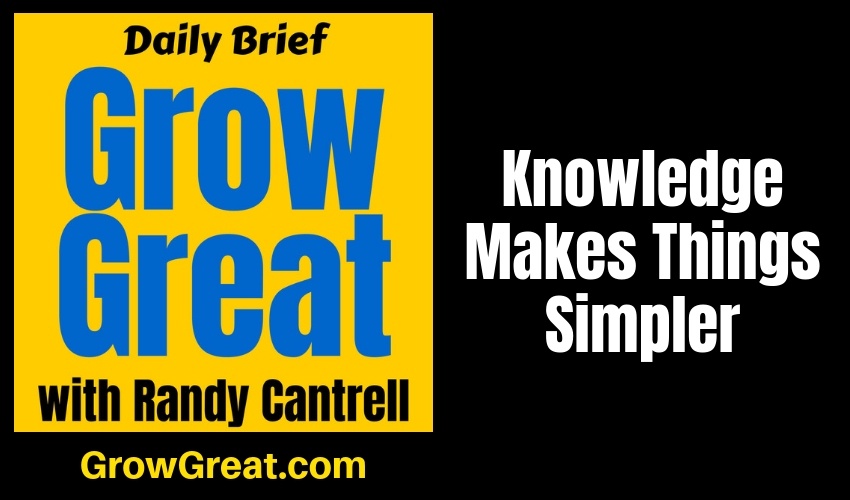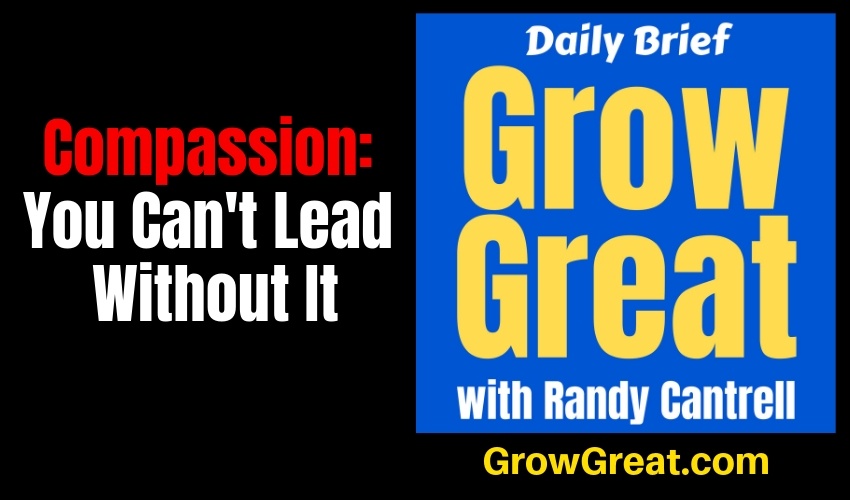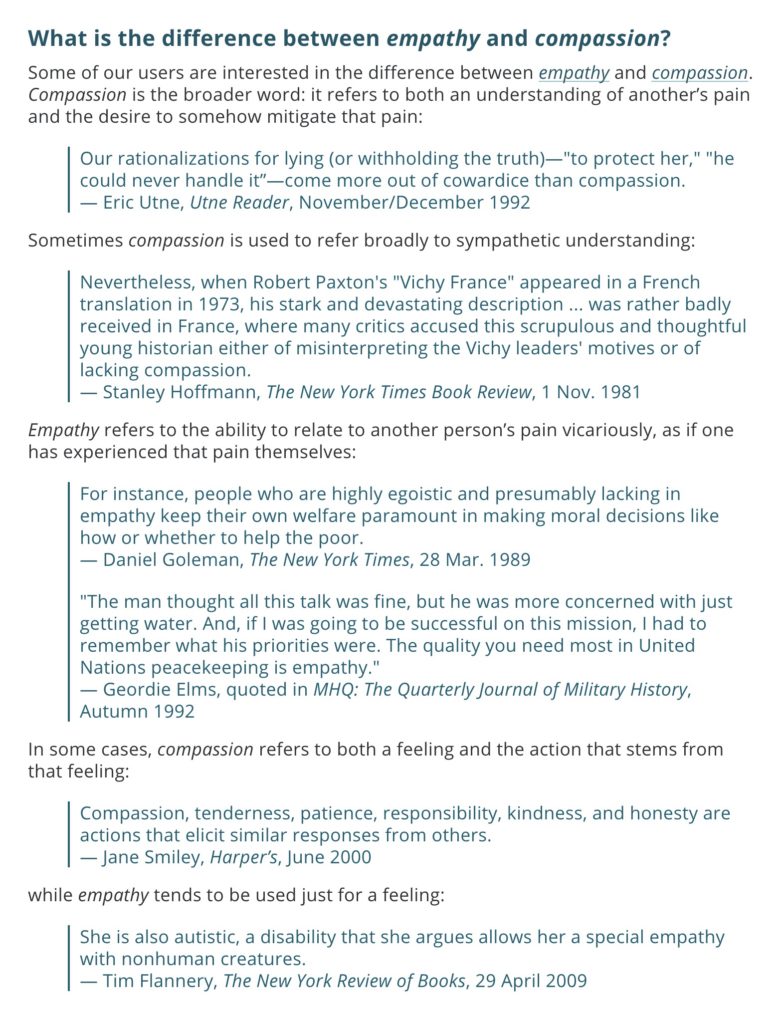Opening A Closed Mind – Grow Great Daily Brief #153 – February 8, 2019
Podcast: Play in new window | Download (Duration: 10:27 — 10.1MB)
Subscribe: Apple Podcasts | Spotify | RSS | More
Few things are more closed than a closed mind. Somebody smarter than me will have to teach us why we close our minds, but I’ve been fortunate enough to have experienced a few epiphanies in my life that forced my previously closed mind to OPEN. Each time I feel like reenacting that old V8 drink commercial. Smack my forehead and shout, “Wow! I could have had a V8.” Except I’d have shouted something more like, “Wow! I can’t believe I was so stupid.”
But another emotion has always quickly followed. Thankfulness. I don’t linger too long in berating myself for being so narrow-minded, or blind. Instead, I’m thankful somebody helped influence or convince me to reconsider what I thought, felt or believed.
Blind spots are funny creatures. They live inside your head and you don’t even know they’re there. But once you spot them, you can’t ignore them. And when you change your mind, they go away. Well, to be fair – those specific blind spots may. But new blind spots are still there. Until something or somebody reveals them. That’s why I’m so intently focused these days on surrounding yourself with people who can caringly challenge you. And your blind spots.
There are some important common denominators I’ve seen in a closed mind. My own and others. Talking about these may help us understand some things we can do to open a closed mind.
For starters, isolation fosters a closed mind.
That doesn’t mean we have to become hermits. We can isolate ourselves on a subject matter. A person can be surrounded by people but never foster interaction with anybody who may challenge a particular point of view. Leaders do this more frequently than they’re able to admit. A leader operates based on a set of beliefs that are never challenged because he won’t allow it. Mind closed. Simultaneously, he can be open-minded about many other things that aren’t based on strong beliefs. The stronger the beliefs, the more closed the mind may become.
Agreement fosters a closed mind.
When I think back to the times when my closed mind was challenged I realize that my blind spot (and closed mind) were largely fueled by a lack of challenge. I thought something to be true. The people around me thought the same thing. Result? Our agreement never provoked us to take a closer look.
Assumptions are too comfortable. Much more comfortable than considering they may be wrong.
My closed mind was always (100%) the result of assumptions I thought were absolutely, positively correct. Until I learned they weren’t. Or they may not be.
It’s smooth sailing to go our merry way, day after day, living with all the things we’ve always assumed to be true. Honestly, there’s just no work involved.
The workout that kicks our butt is to have those assumptions challenged. To have somebody in our life who cares deeply enough about us to challenge us to make sure we’re seeing things correctly. It’s not about somebody who wants to manipulate or coerce us into their way of thinking. It’s about somebody who caringly, and bluntly, is able to express enough concern for us that they want us to make sure we’re seeing things clearly. Clearly enough to learn, understand and grow.
It’s less about persuasion. It’s more about making sure you’re seeing things accurately.
In my own experiences, my previously closed mind was opened not by somebody who was an opponent seeking to win an argument, but a trusted friend intent on helping me make sure I’m correct. And now we’re onto something powerful I think. Don’t you?
This is why I’m intent on whoever surrounds us not being judgmental. Or harpy. Or filled with “should’s.” “You should do this” or “you should do that.” Or “you shouldn’t do this or that.” All the armchair quarterbacking that goes on isn’t helpful. It’s a proud person filled with hubris trying to impose on others. Often fueled by that notion that they’re smarter and wiser than you. Perhaps they are, but that’s not the path to helping anybody open their mind. Rather, it’s a surefire way to making the seal even tighter.
Minds are open when we feel safe and cared for.
Yet people waste everybody’s time pushing, pressing and arguing. Putting forth good arguments is a solid tactic, but it’s fruitless up against a closed mind. Influence and persuasion are terrific skills, too. But if a mind is closed, they’re no match.
The relationship means everything. Until you have a relationship filled with safety and care, you’re powerless to open a closed mind. You can use this knowledge in your own life – to battle your own close-mindedness and you can use it to help people with whom you have a relationship.
Don’t confuse all this with things like our American court system. The justice system is built on adversarial performances. It’s advocacy. One side advocates for innocence. The other for guilt. In between the two are the people who will decide. Either a jury or a judge. While they’re supposed to be impartial, they’re still human. They listen, observe and hopefully aren’t so close-minded they can’t see the facts as they should. When the jurors retreat to make their decision there’s conversation and minds are changed based on how each member feels about other members. My money is on the juror who the other jurors most trust. That’s the person with the most influence inside that room. And it’s probable that the jurors mostly lean toward not just the facts, but the likeability of the people doing the advocating. People are people.
Who surrounds you that makes you feel safe and cared for — but people willing to challenge you. Mostly because they care that much for you. And even in the moment, when you suffer the epiphany of stupidity (like the ones I’ve described that have hit me) – you know this person cares. So your mind opens up like a flower that blossoms. And suddenly the fragrance of an open mind sweeps through your nostrils, helping all the fog that once occupied your mind (and your feelings) dissipate. It’s the difference between being outside on a gloomy, foggy day and a day filled with sunshine and not a cloud in the sky. There’s simply no comparison.
Let me tell you about The Peer Advantage by Bula Network.
Are you an entrepreneur in the United States (apologies to my European, Australian and foreign friends, but time zones are the issue for this project)? If you’re running a company with revenues between 1 and 100 million bucks a year (it can be more; it can be less), then I’d like to learn more about you and your company. I’d like to offer you the opportunity to be more intentional, purposeful and mindful of who you surround yourself with. Specifically, I’d like to see if you’re a good fit to join a group of 7 entrepreneurs and me as we work together to learn, understand and grow. I’d also like to give you the opportunity to see if you think such a group would be a good fit for YOU. The purpose? To help each other grow our business, our leadership, and our lives. To create a uniquely powerful group where every member feels safe, cared for and helped. Just go to BulaNetwork.com/apply – complete that short survey and then we’ll jump on the phone to talk. Mostly, I’m going to learn more about you and your business. I’m interested. And I’m happy to answer any questions you may have, too. Consider it a first date, and we can decide if we want to have a second one or just part ways in a friendly way.
Have a great weekend. I look forward to hearing from you.
Be well. Do good. Grow great!

Opening A Closed Mind – Grow Great Daily Brief #153 – February 8, 2019 Read More »
